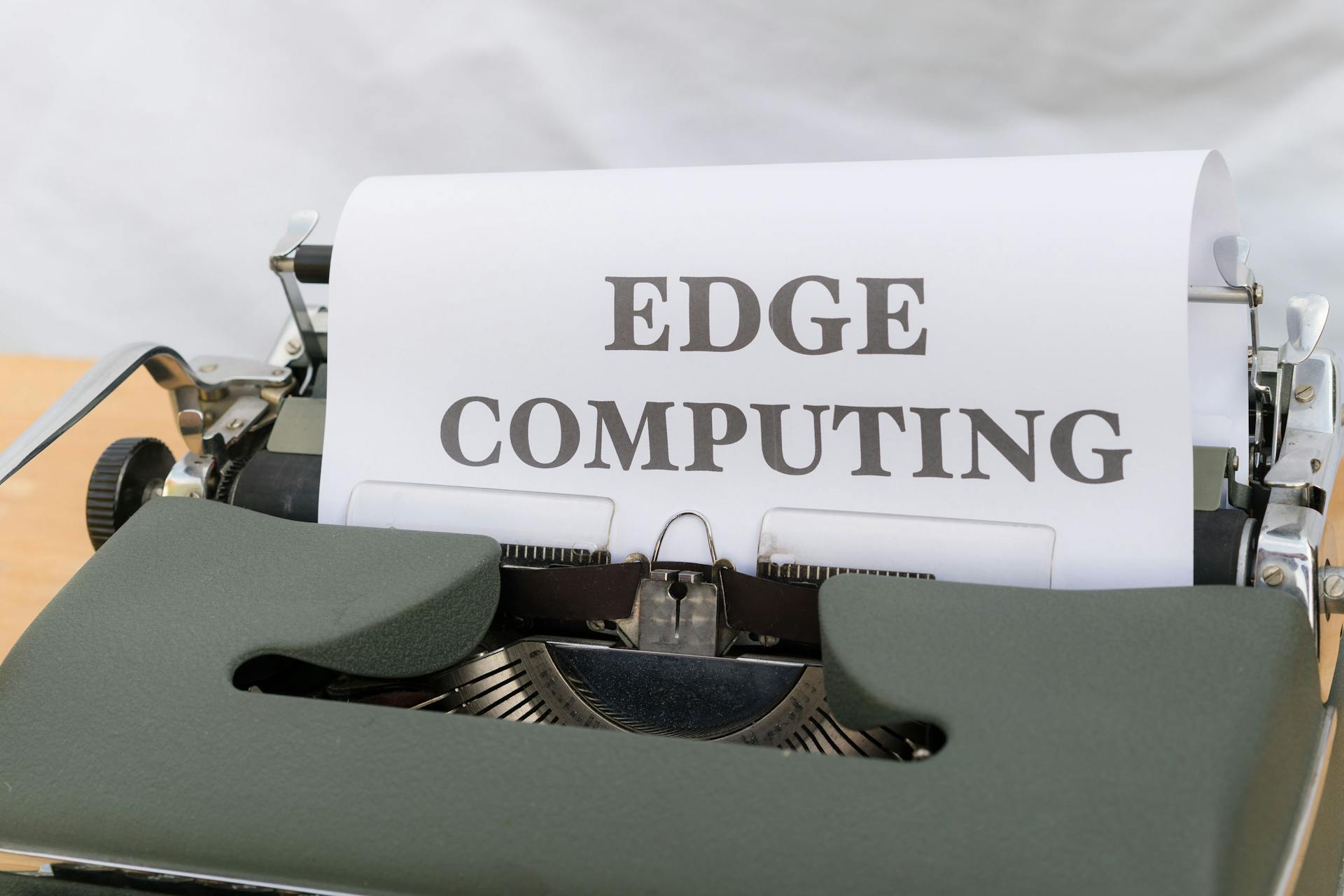
The Uniform Electronic Transaction Act (UETA) has revolutionized the way businesses conduct transactions.
UETA was enacted in 1999 to provide a framework for electronic transactions.
It applies to electronic records and signatures, making it easier for businesses to use digital tools.
The Act ensures that electronic records and signatures have the same legal effect as their paper-based counterparts.
Businesses can now use electronic means to sign contracts, send invoices, and conduct other transactions.
This has increased efficiency and reduced costs for many companies.
What Is the Act?
The Uniform Electronic Transactions Act, or UETA, is a legal framework that ensures the validity and enforceability of electronic signatures in the United States. It was introduced in 1999 to give electronic signatures the same legal effect as traditional, handwritten signatures.
The UETA was enacted into federal law in 2000, establishing that eSignatures and manual signatures are equivalent means to form legally binding contracts and agreements. This was a significant development, as it simplified processes and reduced reliance on physical documents.
UETA applies legal authority to electronic documents and electronic signatures or agreements. This means that electronic signatures have the same legal validity as their paper counterparts. The act was written by the National Conference of Commissioners on Uniform State Laws, or NCCUSL, to help keep physical paperwork from gumming up the speed of business.
The UETA has been adopted in various states across the United States to establish a legal framework for electronic transactions. Its purpose is to ensure that electronic signatures and records have the same legal validity as their paper counterparts. This has eliminated geographical barriers by facilitating remote signing and verification.
UETA standardizes practices around electronic records, aligning digital transactions with legal requirements set for traditional methods. This simplifies user interactions by standardizing electronic processes.
Key Features and Benefits
The Uniform Electronic Transaction Act (UETA) offers several key features and benefits that make it an attractive solution for businesses and individuals alike. Electronic signatures and records have the same legal standing as paper ones, ensuring their enforceability.
By reducing reliance on physical documents, UETA streamlines processes and accelerates transaction times, particularly in sectors like finance and real estate. This increased efficiency can be a game-changer for businesses looking to boost productivity.
Here are some of the key benefits of UETA:
- Legal Validity: Electronic signatures and records have the same legal standing as paper ones.
- Efficiency: UETA reduces reliance on physical documents, streamlining processes and accelerating transaction times.
- Cost Savings: UETA eliminates paper documents, cutting costs related to printing, mailing, and storage.
- Remote Accessibility: UETA allows remote signing and verification, breaking geographical barriers.
Key Features and Benefits
Streamlining electronic transactions is a key feature of UETA, reducing paperwork and allowing users to complete transactions from anywhere. This enhances user satisfaction by providing a reliable alternative to physical signatures.
One of the primary benefits of UETA is its ability to provide legal validity to electronic signatures and records, giving them the same standing as paper ones. This ensures the enforceability of agreements made digitally.
UETA also offers efficiency, reducing reliance on physical documents and streamlining processes to accelerate transaction times. Businesses in sectors like finance and real estate benefit significantly from this increased efficiency.
By eliminating paper documents, UETA cuts costs related to printing, mailing, and storage, making electronic processes more sustainable and economical. This is particularly beneficial for businesses that handle a high volume of transactions.

Remote accessibility is another key feature of UETA, allowing remote signing and verification, and breaking geographical barriers. This convenience supports global commerce by enabling businesses to operate across borders seamlessly.
However, there are also some challenges to consider, such as state variances in implementation, which can create challenges in multi-state transactions. Additionally, effective use of UETA relies on digital literacy, and individuals lacking technology skills may face obstacles in accessing benefits.
Here are some of the key features and benefits of UETA:
- Legal validity: electronic signatures and records have the same standing as paper ones
- Efficiency: streamlines processes and accelerates transaction times
- Cost savings: eliminates paper documents and reduces costs related to printing, mailing, and storage
- Remote accessibility: allows remote signing and verification, breaking geographical barriers
While UETA has many benefits, it's essential to be aware of the potential challenges, such as limited international recognition and dependence on technology.
Pricing and Availability
Pricing and availability are crucial factors to consider when implementing electronic transaction systems under UETA.
Each state determines its own fees associated with implementing UETA, so businesses need to verify state-specific regulations to understand potential costs accurately.
By 2023, most states have adopted UETA or similar legislation, providing a consistent legal framework for electronic transactions.
Businesses can leverage this widespread adoption to streamline operations and expand digital processes confidently.
Legal professionals and business advisors often offer consulting services to assist companies in understanding their UETA obligations and benefits.
If this caught your attention, see: Employees' State Insurance
Business Consent
Business Consent is crucial for any business transaction. To ensure you're covered, you need to obtain consent from all parties involved, including consumers.
All parties must consent to do business electronically, which means they agree to use electronic records for the transaction. This is especially important for consumers, who require special consent disclosures.
To obtain consumer consent, you need to provide them with UETA Consumer Consent Disclosures. They must also affirmatively agree to use electronic records for the transaction. And, importantly, they cannot withdraw their consent once given.
Here are the key requirements for consumer consent:
- Received UETA Consumer Consent Disclosures
- Affirmatively agreed to use electronic records for the transaction
- Has not withdrawn such consent.
Reach
The UETA has a specific reach, which is limited to business, commercial, or governmental transactions. This means that e-signatures on documents like leases are covered, but personal agreements between individuals are not.
The UETA doesn't cover non-business related agreements, so an email about a personal agreement wouldn't fall under its terms. This distinction is important to keep in mind when using e-signatures in your daily life.
Worth a look: Can I Write off Business Expenses on My Personal Taxes
Electronic Signatures
Electronic signatures are a game-changer for businesses, making it easier to conduct transactions digitally. Electronic signatures are legally binding, and they're not just some sort of sorcery, but rather a legitimate way to sign documents.
The Uniform Electronic Transactions Act (UETA) ensures that electronic signatures are recognized as equivalent to manual signatures, allowing businesses to form legally binding contracts and agreements digitally. This means that electronic signatures are just as valid as handwritten signatures in a court of law.
To qualify as an electronic signature under UETA, the system used to capture the transaction must create an associated record that includes either the process used to capture the signature or a textual or graphic statement. This record must be easily accessible by all parties involved.
Here are the key requirements for electronic signatures under UETA:
By following these requirements, businesses can ensure that their electronic signatures are valid and recognized by law.
Frequently Asked Questions
What is the purpose of the Uniform Electronic Transactions Act?
The Uniform Electronic Transactions Act (UETA) aims to establish a framework for the use of electronic signatures and records in business and commerce, promoting efficiency and convenience in digital transactions. By providing a standardized approach, UETA helps ensure the validity and enforceability of electronic agreements and signatures.
What states have not adopted UETA?
Only New York has not adopted the Uniform Electronic Transactions Act (UETA), while 49 states, the District of Columbia, the U.S. Virgin Islands, and Puerto Rico have implemented it
Sources
- https://bluenotary.us/ueta/
- https://www.jdyoung.com/resource-center/posts/view/193/what-is-ueta-how-it-works-and-who-needs-this-tool
- https://betterproposals.io/blog/ueta-explained/
- https://www.digisigner.com/electronic-signature/ueta-makes-electronic-signature-legally-binding-in-the-us/
- https://www.mastagni.com/blog/how-to-make-your-e-signature-bulletproof-california-uniform-electronic-transactions-acts-special-requirements/
Featured Images: pexels.com


